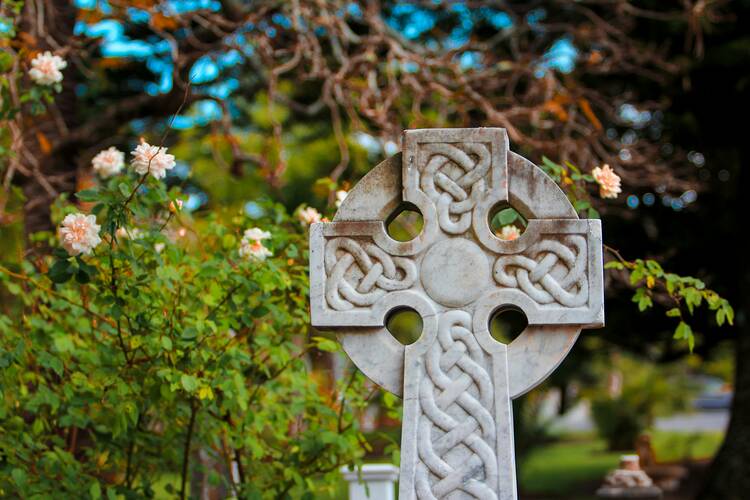A Reflection for Saturday of the Twenty-seventh Week in Ordinary Time
While Jesus was speaking,
a woman from the crowd called out and said to him,
“Blessed is the womb that carried you
and the breasts at which you nursed.”
He replied, “Rather, blessed are those
who hear the word of God and observe it.”
Despite my glaringly Polish last name, my upbringing in the faith was molded in many ways by the fiercely Irish side of my family. Icons of St. Patrick, the cross of St. Brigid and photos of my great-grandmother adorned my childhood home. My family would tell tales of her flight to America during the Great Famine and laugh as we watched old videos of her saying “Jesus, Mary and Joseph!” in her thick Irish brogue.
The overwhelming presence of shamrocks and green can give Irish Catholicism a reputation for being kitschy. More inaccurate, in my opinion, is that the faith of Irish Catholics is simply cultural, a routine. The faith of my mom can serve as a testimony against this.
At 23 years old, my mother explained to my father (who was not Catholic at the time) that he did not have to convert for them to get married, but their children would need to be baptized in the Church. Later, blessed with two sons, she gave my brother Aaron and me what she believed were “strong, Old Testament” names.
Climbing into the minivan with my older brother after Mass, my mom frequently turned the radio off and asked us our thoughts on the readings or the homily. When there was a baptism, she shifted her seat in the pew so we could have a clearer view of the font. And when my dad was on deployment, my mom meticulously counted out Skittles and M&M’s, equal to how many days he would be at sea. At the end of each day, we would take turns eating one of the candies and offer a prayer for my dad as we counted down the days until his return.
As early as I can remember, my mother would pray with me before I went to sleep. Afterward, she would lightly trace a cross on my forehead with her thumb before kissing the same spot. As a child, this gesture brought a feeling of comfort and love. Today, that love comes to mind every day as I trace my own cross on my forehead before the proclamation of the Gospel at Mass.
Recent visits with my family remind me of today’s Gospel. My identity as a Jesuit can tend to be a topic of intrigue to neighbors and parishioners in my hometown. Sometimes, these people have grabbed my mom’s hand, saying, “You must be so proud to be his mom!” While I know these people mean well, the prayers, rituals and witness of my mother seem to take a back seat to my vocation with this phrase.
Christ’s response to the woman’s praise of his mother is not a rebuke but an invitation. Jesus is not suggesting that Mary’s motherhood is unimportant; rather, he invites the woman and the crowd to a deeper appreciation of it. I believe Christ wished the crowd could have known about his mother’s courage at the Annunciation or her beautiful testimony at the Visitation. I wonder if he said this in the hope that they might better recognize Mary’s steadfast faith at his coming crucifixion.
Thanks be to God for our moms and the mother figures who have cared for us. Let’s give thanks for the ways they’ve nurtured us not only physically but faithfully, showing us what it means to hear God’s word and observe it.








